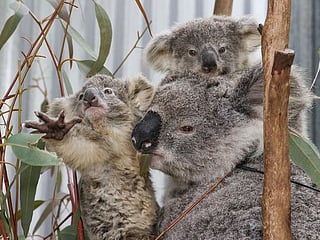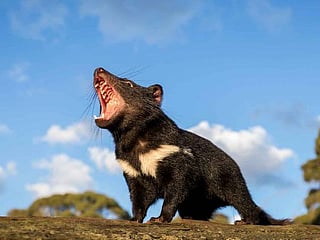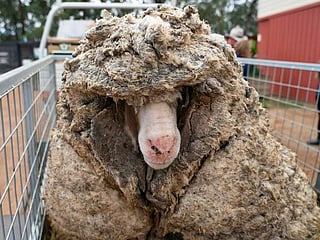Man’s barbecue binge sparks new COVID-19 curbs in Sydney
Australia’s largest city battling new cases after a month without local transmission

Sydney: A barbecue enthusiast who went on a Sydney-wide search for grilling supplies while infected with the coronavirus has triggered new restrictions in Australia’s largest city, which is now battling new cases after a month without local transmission.
Authorities are mystified as to how the man, who is in his 50s, became infected. He was not a border or quarantine worker and had not recently returned from overseas. His wife also tested positive.
“We know for a fact there’s at least one person, if not more, walking around with the virus, not knowing they have it or potentially having attended many events and venues and that’s why it’s important for us to have a proportionate response,” Gladys Berejiklian, the premier of New South Wales, said Thursday as she announced three days of restrictions in the Sydney area.
The unnamed man crisscrossed the city while infectious in recent days, visiting four barbecue stores, miles apart, and a butcher shop. He dined at several restaurants and took in a movie at a local theatre. People who came into contact with him, including the state’s treasury chief, were asked to self-quarantine and get tested.
Sydney residents, who have been able to go to football games, dance, drink and sing mask-free since coronavirus restrictions were eased a few months ago, quickly remarked on the absurdity that Australia’s national pastime, barbecuing, should be the cause of fresh restrictions.
“Not to take the Sydney covid case lightly but this guy’s barbecue rampage is commendable,” one Twitter user wrote.
“If he was vegan we would have nothing to worry about,” another user replied.
“Sure hope old mate who caught COVID in Sydney got a chance to use his new Barbecue before testing positive,” wrote another.
Starting Thursday evening, residents of Sydney and nearby areas won’t be able to have more than 20 people in their homes. Masks will be compulsory on public transportation and in indoor spaces, including shopping centres, theatres, retirement homes and hospitals. Singing indoors, including in churches, will be banned, along with dancing in clubs. Patrons also must be seated when drinking at pubs.
The new cases come as Australia faces legal challenges to contentious border restrictions.
On Wednesday, Gary Newman, a 73-year-old Australian stuck in Bangalore, challenged the federal government’s decision to pause flights from virus-stricken India. Anyone, including Australian citizens, who arrives in the country before May 15 after visiting India in the previous 14 days can face up to five years in prison, a $50,000 fine or both.
His lawyers will challenge the ban on multiple grounds, including that it is unconstitutional.
While Australia largely quashed the virus, its vaccine rollout has been plagued by delays. Far fewer residents have been inoculated, proportionally, compared with the United States and Britain.
Lab results have shown the sequence from the Sydney man’s case matched that of a traveler from the United States who caught the virus in hotel quarantine in April. Tracers haven’t been able to establish a link between the two, however, raising concerns there may be more undetected cases.
Authorities asked thousands of residents to seek testing for any mild cold symptoms after fragments of the coronavirus were detected in sewage in several Sydney suburbs.
Mystery outbreaks are especially troubling for authorities because of the virus’s resilience and ability to spread with no clear source. When the virus reappeared in New Zealand’s biggest city, Auckland, in August after three months, it spread to more than 100 cases. The source of the outbreak was never determined.
In response to the new Sydney cases, New Zealand said it would pause quarantine-free travel with New South Wales for 48 hours. Australia and New Zealand launched the travel bubble just last month.
Sign up for the Daily Briefing
Get the latest news and updates straight to your inbox







![Rachel Bloor kept her cool while guiding the snake out of the house. [Illustrative image]](http://media.assettype.com/gulfnews%2F2026-01-16%2Fmi5wlmq0%2Fpython.jpg?w=320&auto=format%2Ccompress&fit=max)


